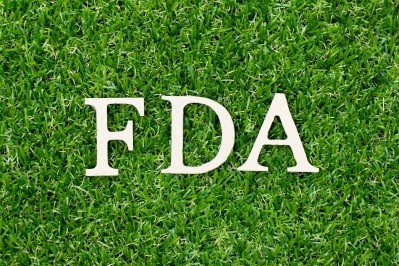Part 1
FDA’s Cara Welch on RRAs & third-party audits: 'We’re staring at a backlog of inspections'

Remote regulatory assessments (RRAs) for food products (which includes dietary supplements) were established as a temporary program during COVID, to allow the agency to keep its finger on the industry pulse in some way.
For food, RRAs are a voluntary program: If the firm agrees to participate, FDA requests certain documents, reviews them, and then issues feedback.
Speaking at last week’s GRMA Summit in Chicago, Dr Cara Welch, ODSP Director, explained that RRAs are an adjustment to FDA’s inspection program.
“Based on experience to date, I suspect they will continue to be used even as we move into more traditional inspections,” she said. “But there’s more to be done. Putting together the maximum number of inspections plus RRAs, there are still legitimate concerns that we won’t really be getting the numbers we want to see in order to get a good picture of the compliance status of dietary supplement facilities.”
Indeed, pre-COVID, the FDA’s dietary supplement program had been conducting 500-600 facility inspections per year, which represents barely 5% of the 10,000 dietary supplements facilities in the system (during the COVID years of 2020 and 2021, the number of facility inspections dropped to less than 300).
“We’re staring at a backlog of inspections that weren’t able to be completed in the past couple of years,” she said.
“Within FDA always, there’s the desire to do more inspections and to do the right inspections and have the biggest impact on public safety and product quality.”
Third party audits
Addressing GRMA stakeholders, Dr Welch noted that the Agency also hears from some larger firms about audit fatigue based on the sheer number of people walking through their facility.
“Even while FDA isn’t necessarily in a facility every year, there are multiple certification programs for dietary supplements depending on where a firm wants to sell their product, they may need audits from several different programs,” she said.
“So naturally, questions arise: Are any of these audits duplicative? Can they be reduced or combined? And this is obviously something that GRMA is actively working on already. But even more so, how can these audits be integrated into FDA’s inspectional activities?"
Dr Welch noted that, in 2022, the industry is 15 years beyond the publication of the cGMP rule for dietary supplements. During that time, FDA has performed thousands of facility inspections, and, for better or worse, has issued hundreds of warning letters.
“But also, there are many certification programs and auditors have well over a decade of experience auditing firms,” she noted.
“So how can a third-party audit impact FDA’s priority of ensuring high quality, properly labeled dietary supplements?” she asked. The agency has heard many suggestions from industry stakeholders about this, she added, with some progressive suggestions including whether a third-party audit take the place of an FDA inspection, or, more passively, can a third-party audit report be shared with FDA and apply that to inspectional prioritization?
The short answer is no, said Dr Welch, but she thinks there is some room to figure what information can be made available to FDA and particularly how that information may impact FDA’s inspectional operations.
Some key questions, she said, would include:
1. How can we optimize the programs that already exist?
2. How can we expand the programs that already exist?
3. What more can we do to create new programs?
“It’s safe to say from FDA’s perspective, we look forward to engaging with stakeholders on this topic, along with our FDA colleagues,” she said. There would need to be engagement with the Office or Regulatory Affairs, the Office of Compliance, and CFSAN, said Dr Welch.
“We all agree that the idea of reducing redundancies while still evaluating the status of a firm’s cGMP compliance is a situation where everyone wins. So, let’s see what we can do for that.”
Click HERE to read part 2 of this report.








